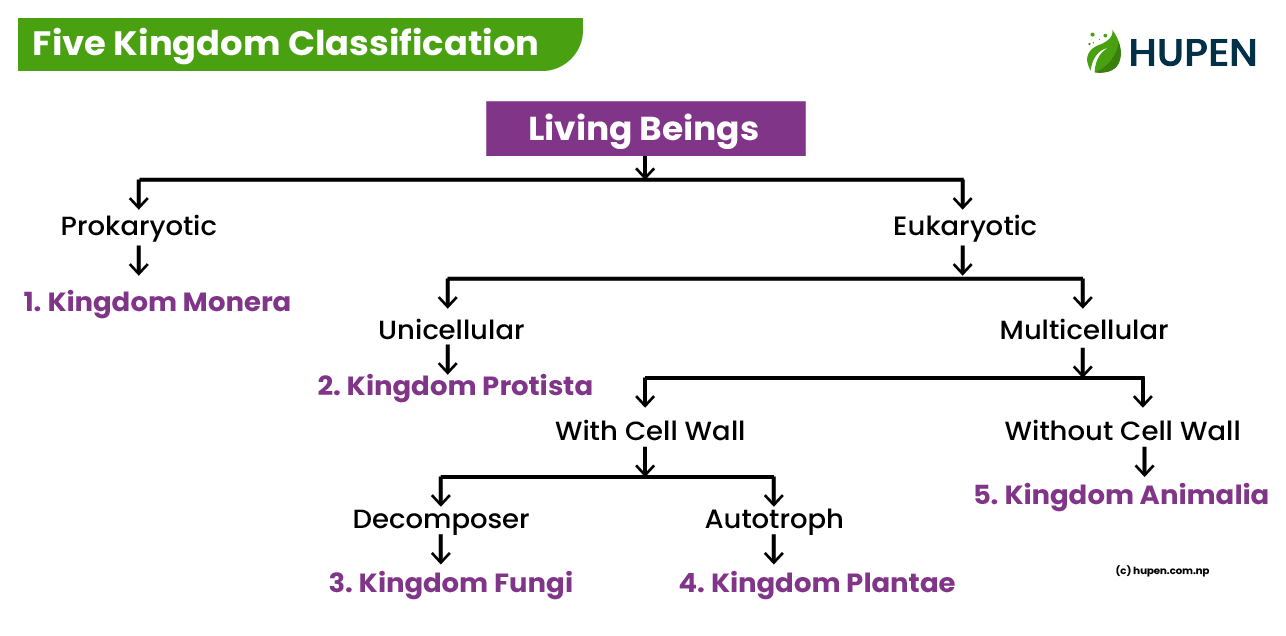
Classification of Living Beings
The process of classifying living beings by their similar and dissimilar characteristics in different groups and sub-groups is called the Classification of Living Beings. Classification of Living Beings involves the systematic categorization of organisms based on their shared and distinct characteristics into various groups and sub-groups.
Five Kingdom Classification

The classification system where all living beings are grouped into five kingdoms, viz. Monera, Protista, fungi, Plantae, and Animalia is called the five kingdom classifications. It was first proposed by Robert Whittaker in 1969.
Short Notes on Five Kingdoms:
- Monera: Single-celled, no nucleus (e.g., bacteria).
- Protista: Single-celled with a nucleus (e.g., amoeba).
- Fungi: Multicellular, decomposers (e.g., mushrooms).
- Plantae: Multicellular, perform photosynthesis (e.g., trees).
- Animalia: Multicellular, consume food (e.g., humans).
Share Now
Share to help more learners!

